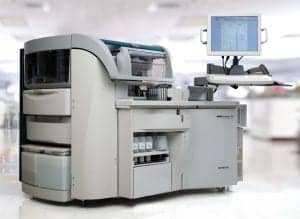Thomas Jefferson University in Philadelphia, PA and NuView Life Sciences have entered into an exclusive licensing agreement for advancing the development of a new molecular imaging (MI) compound which identifies genomic expressions linked to prostate cancer (PC).
"The prostate compound developed at Thomas Jefferson University may provide a noninvasive early and more accurate imaging technique to a) localize primary PC, that will guide biopsy b) detect recurrent disease, c) image metastatic disease and d) determine effectiveness of treatment," said Mathew Thakur, Professor of Radiology and Director and principle investigator.
Advances in genomics and proteomics have shed new light on the genesis of many diseases, including PC. PC cells express oncogene product VPAC1 exogenously in a large number. These specific fingerprints express themselves at a very early stage; well before cell morphology has altered for histologic confirmation, and even well before the elevation of PSA. We hypothesize that targeting elevated VPAC1 with gene guided radioactive probe for molecular imaging of PC will permit us to contribute toward this need.
"During the past 10 years the Thakur laboratory at Thomas Jefferson University has gained extensive experience in successfully targeting these biomarkers with Tc-99m or Cu-64 labeled specific peptides, for early and accurate diagnosis of pancreatic and breast cancers in animals as well as in humans by planar, SPECT and PET imaging. The early data for PET imaging of PC by Cu-64-peptide are highly encouraging," said Thakur.
Source: NuView Life Sciences




